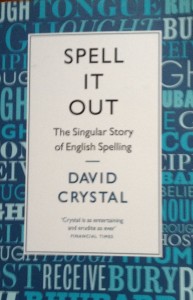 The Oxford English Dictionary has been an invaluable source of pleasure and learning since it was first published in 1884. Now that it’s on the web it’s there, whenever you want it. You can of course subscribe but much of it is free. Constantly revised and researched by an army of editors and experts in England and the USA, the online version is updated no less than four times a year.
The Oxford English Dictionary has been an invaluable source of pleasure and learning since it was first published in 1884. Now that it’s on the web it’s there, whenever you want it. You can of course subscribe but much of it is free. Constantly revised and researched by an army of editors and experts in England and the USA, the online version is updated no less than four times a year.
It’s fascinating how a new or updated word will have one person smiling and another snarling. Why, for instance does the new addition srsly make me grin, whereas merch for merchandise has me reaching for a gun to shoot someone? Or myself. I mean OMG, do we have to reduce everything to text speak? Dear OED what were you thinking of! My loathing of such monstrous non-words is only partially offset by my joy in discovering that OMG, far from being an invention of today’s youf, has its origins in the early nineteen hundreds. OMG indeed.
It came as a surprise to discover that fewer than 100 new entries date from 2000. The youngest word in the OED was crowdsourcing until it was supplanted by copernicium, an artificially produced radioactive element. Hashtag is pretty new; it’s only been in since 2007. On the other hand bezzie – best, favourite and now a short form of best mate or best friend – goes back to the mid nineteenth century.
So here, with no apology whatsoever, are some I love and some I hate and some that are just a little weird. The interpretations below are entirely mine, not those of the OED. Oh and BTW I never claimed I would be consistent.
I love
- Flexitarian – I didn’t know I was a flexitarian although I have a varied diet.
- Snacky – feeling snacky? Go and eat something snacky. Or just some nuts!
- Time Suck – cats on the Internet.
- Srsly – I just like this one. I think we’re back to cats on the Internet again.
- Blondies – white chocolate brownies.
- Death stare – We’re good at this in my family.
- Fabrosaur – A type of dinosaur. Made of fabric?
I hate
- Bikeable – an environment suitable for cyclists. Why not say suitable for riding bikes?
- Guac – would saying guacamole strain your brain too much?
- Boyf – OMG OED!!!
- Deets – Ditto
- Citational – I hate it when nouns are turned into adjectives.
- Babymoon – probably used by people who have ‘baby on board’ in their cars.
- Apols – Good God, nooooo. See OMG above.
- Bouncebackability – what the @%$&£ is wrong with resilience?
- Blamestorming – there’s original. And there’s silly.
And then there’s just weird
- Food baby – fat tummy, as in looking pregnant but really just being fat.
- Ship – relationship in fan fiction. Really, really strange.
- Slash – as in actor/dancer. So not taking the piss then.
- Jorts – short jeans or jean shorts. Yuck.
- Fauxhawk – not a bird of prey. They’d have more sense.
- Meatspace – reality check! What planet are you on?
- Derp – The new ‘Duh!?
- Screenager – too clever by half.
What have you found that has you smiling or that sets your teeth on edge? Put your comments below – I’d love to hear what you think.

